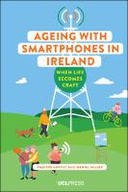Explore

Ageing with Smartphones in Ireland
Pauline Garvey and Daniel Miller
2021
0 Ungluers have
Faved this Work
Login to Fave
There are not many books about how people get younger. It doesn’t happen very often. But Ageing with Smartphones in Ireland documents a radical change in the experience of ageing. Based on two ethnographies, one within Dublin and the other from the Dublin region, the book shows that people, rather than seeing themselves as old, focus on crafting a new life in retirement. Our research participants apply new ideals of sustainability both to themselves and to their environment. They go for long walks, play bridge, do yoga, and keep as healthy as possible. As part of Ireland’s mainstream middle class, they may have more time than the young to embrace green ideals and more money to move to energy-efficient homes, throw out household detritus and protect their environment. The smartphone has become integral to this new trajectory. For some it is an intimidating burden linked to being on the wrong side of a new digital divide. But for most, however, it has brought back the extended family and old friends, and helped resolve intergenerational conflicts though facilitating new forms of grandparenting. It has also become central to health issues, whether by Googling information or looking after frail parents. The smartphone enables this sense of getting younger as people download the music of their youth and develop new interests. This is a book about acknowledging late middle age in contemporary Ireland. How do older people in Ireland experience life today? Praise for Ageing with Smartphones in Ireland 'An innovative and thorough description and analysis of how one small piece of technology has changed the way Irish people live their lives.' Tom Inglis, Professor Emeritus of Sociology in University College Dublin ; 'An innovative and thorough description and analysis of how one small piece of technology has changed the way Irish people live their lives.' Tom Inglis, Professor Emeritus of Sociology in University College Dublin
This book is included in DOAB.
Why read this book? Have your say.
You must be logged in to comment.
